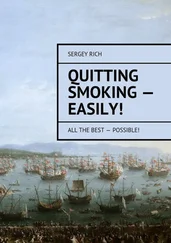The dog in humble inquiry along the ground,
The child who credits dreams and fears the dark,
Know more and less than you: they know full well
Nor dream nor childhood answer questions well:
You too are strangers, children are Shakespearean.
Regard the child, regard the animal,
Welcome strangers, but study daily things,
Knowing that heaven and hell surround us,
But this, this which we say before we’re sorry,
This which we live behind our unseen faces,
Is neither dream, nor childhood, neither
Myth, nor landscape, final, nor finished,
For we are incomplete and know no future,
And we are howling or dancing out our souls
In beating syllables before the curtain:
We are Shakespearean, we are strangers.
I Am to My Own Heart Merely a Serf
I am to my own heart merely a serf
And follow humbly as it glides with autos
And come attentive when it is too sick,
In the bad cold of sorrow much too weak,
To drink some coffee, light a cigarette
And think of summer beaches, blue and gay.
I climb the sides of buildings just to get
Merely a gob of gum, all that is left
Of its infatuation of last year.
Being the servant of incredible assumption,
Being to my own heart merely a serf.
I have been sick of its cruel rule, as sick
As one is sick of chewing gum all day;
Only inside of sleep did all my anger
Spend itself, restore me to my role,
Comfort me, bring me to the morning
Willing and smiling, ready to be of service,
To box its shadows, lead its brutish dogs,
Knowing its vanity the vanity of waves.
But when sleep too is crowded, when sleep too
Is full of chores impossible and heavy,
The looking for white doors whose numbers are
Different and equal, that is, infinite,
The carriage of my father on my back,
Last summer, 1910, and my own people,
The government of love’s great polity,
The choice of taxes, the production
Of clocks, of lights, and horses, the location
Of monuments, of hotels and of rhyme,
Then, then, in final anger, I wake up!
Merely wake up once more,
once more to resume
The unfed hope, the unfed animal,
Being the servant of incredible assumption,
Being to my own heart merely a serf.
The Heavy Bear Who Goes with Me
“the withness of the body”
The heavy bear who goes with me,
A manifold honey to smear his face,
Clumsy and lumbering here and there,
The central ton of every place,
The hungry beating brutish one
In love with candy, anger, and sleep,
Crazy factotum, dishevelling all,
Climbs the building, kicks the football,
Boxes his brother in the hate-ridden city.
Breathing at my side, that heavy animal,
That heavy bear who sleeps with me,
Howls in his sleep for a world of sugar,
A sweetness intimate as the water’s clasp,
Howls in his sleep because the tight-rope
Trembles and shows the darkness beneath.
— The strutting show-off is terrified,
Dressed in his dress-suit, bulging his pants,
Trembles to think that his quivering meat
Must finally wince to nothing at all.
That inescapable animal walks with me,
Has followed me since the black womb held,
Moves where I move, distorting my gesture,
A caricature, a swollen shadow,
A stupid clown of the spirit’s motive,
Perplexes and affronts with his own darkness,
The secret life of belly and bone,
Opaque, too near, my private, yet unknown,
Stretches to embrace the very dear
With whom I would walk without him near,
Touches her grossly, although a word
Would bare my heart and make me clear,
Stumbles, flounders, and strives to be fed
Dragging me with him in his mouthing care,
Amid the hundred million of his kind,
The scrimmage of appetite everywhere.
A Dog Named Ego, the Snowflakes as Kisses
A dog named Ego, the snowflakes as kisses
Fluttered, ran, came with me in December,
Snuffing the chill air, changing, and halting,
There where I walked toward seven o’clock,
Sniffed at some interests hidden and open,
Whirled, descending, and stood still, attentive
Seeking their peace, the stranger, unknown,
With me, near me, kissed me, touched my wound,
My simple face, obsessed and pleasure bound.
“Not free, no liberty, rock that you carry,”
So spoke Ego in his cracked and harsh voice,
While snowflakes kissed me and satisfied minutes,
Falling from some place half believed and unknown,
“You will not be free, nor ever alone,”
So spoke Ego, “Mine is the kingdom,
Dynasty’s bone: you will not be free,
Go, choose, run, you will not be alone.”
“Come, come, come,” sang the whirling snowflakes,
Evading the dog who barked at their smallness,
“Come!” sang the snowflakes, “Come here! and here!”
How soon at the sidewalk, melted, and done,
One kissed me, two kissed me! So many died!
While Ego barked at them, swallowed their touch,
Ran this way! And that way! While they slipped to the ground,
Leading him further and farther away,
While night collapsed amid the falling,
And left me no recourse, far from my home,
And left me no recourse, far from my home.
from GENESIS: BOOK I (1943)
Editor’s note
Genesis was Schwartz’s most ambitious and least successful work. A sprawling book-length poem interspersed with narrative prose, it was intended, through the alter ego of Hershey Green, to tell Schwartz’s life story, and by extension, the story of European Jews in America. The poem begins as Green is interrupted in his sleep, visited by anxious thoughts and memories, as well as by a host of jovial if cynical spirits who egg him on to tell his tale. In the prose sections, he begins with his ancestors’ lives in Europe, and works his way to his own seventh year in America. In verse passages that separate the prose, the ghosts comment in sometimes gorgeously lyrical, sometimes plodding poetry.
The narrative structure alone would make Genesis a hard book to excerpt, but further complicating the matter is its uneven quality. The prose is often flat, slow, and sentimental, and the voices of the ghosts in verse are often unbelievable or downright silly. But there isn’t a page without good, even great lines and passages.
Genesis was deeply important to Schwartz; in phases of manic self-confidence, he thought the poem would make him immortal, and when despairing he thought it a complete failure. I have chosen to include these selections not because they show Schwartz at his best, but because this work was central to his conception of himself as a person and as a writer. Also, almost none of this book has been available since its initial printing in 1943. A full view of what Schwartz worked to accomplish would be incomplete without it.
I have used this symbol [~] to indicate breaks between selections. My selections begin with the poem’s opening passage.
“…. Me next to sleep, all that is left of Eden,”
— The one who speaks is not remarkable
In the great city, circa 1930,
His state is not uncommon in the world,
O, by no means, sleepless and seeking sleep
As one who wades in water to the thighs,
Dragging it soft and heavy near the shore;
For now his body’s lapse and ignorance
Permits his heavy mind certain loose sleeves,
Loose sleeves of feeling drawing near a drowse:
He knows of dark and sleep the unity,
Читать дальше












